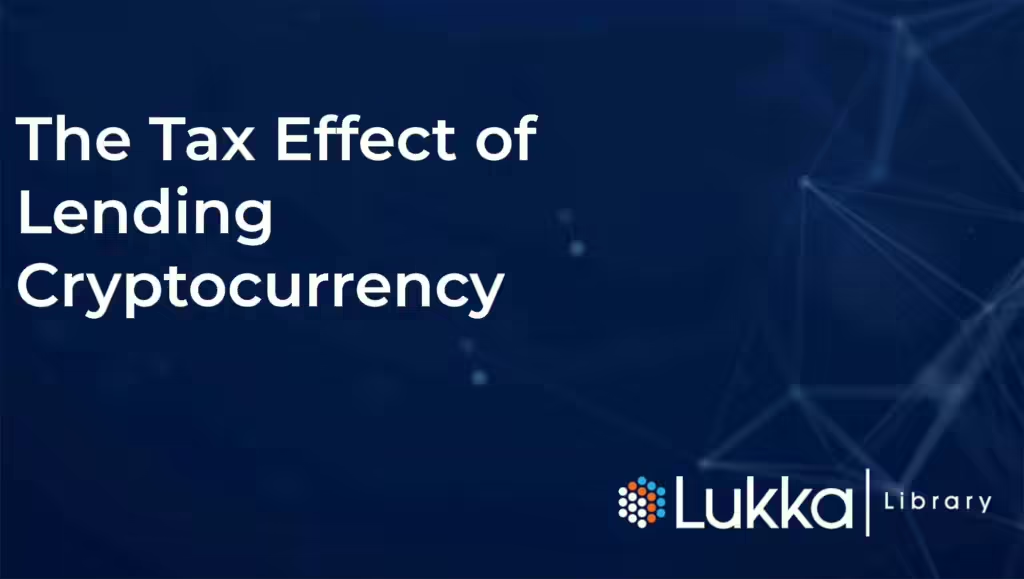The discussion in this document reflects legal principles as of February 24, 2020.
Author: David Shakow, Professor Emeritus, University of Pennsylvania School of Law1
Formal ownership of crypto currency may be transferred under various circumstances. When will the transfer result in a disposition requiring the recognition of gain or loss on the item, and how will any payments flowing between transferor and transferee be characterized?
Holders of securities may engage in “securities loans.” The borrower agrees to return the same securities to the lender, usually on demand. Section 1058 of the Internal Revenue Code has rules governing securities loans. If the provisions of that section are complied with, the lender does not have a taxable event when making such a loan. That provision was passed in 1978 and regulations were proposed in 1983. Those regulations have never been finalized. At the time section 1058 was passed, the Code was also amended to make clear that the income received by a tax-exempt, securities lender would not be treated as unrelated business taxable income.
Before the 1978 legislation, the IRS had considered the proper treatment of securities loans. It had been reluctant to include the income generated by securities loans in the categories listed in section 512(b). That section lists the types of income that are not unrelated business taxable income and therefore can be received tax-free by tax-exempt entities. Included in the list are interest, dividends, royalties, and rents. Presumably, the IRS felt that the income should be viewed as some kind of fee differing from the categories in section 512(b).
However, the IRS fairly consistently held that the securities loan itself did not constitute a taxable disposition. When it last articulated that conclusion (in GCM’s written shortly before section 1058 was passed), two reasons were given to justify not treating a securities loan as a disposition. Since the lender would be receiving the same security that it had lent, this exchange was properly described in section 1.1001-1 of the regulations, which holds that an exchange is not a realization event if the property received does not differ materially either in kind or in extent from what was given up. Secondly, when stock is loaned, section 1036 of the Code gives nonrecognition treatment if stock of a corporation is exchanged for other stock of the same corporation, as long as common stock is exchanged for common stock or preferred stock is exchange for preferred stock.
It is difficult to argue that a cryptocurrency is a security for purposes of section 1058. However, the analysis applying section 1.1001-1 of the regulations to a securities loan would seem to apply to the loan of cryptocurrency just as it applies to a loan of securities.
Note that this conclusion assumes that the cryptocurrency returned to the lender is the same cryptocurrency that was lent. The issues that have been discussed elsewhere regarding whether, prior to the 2017 tax act, an exchange of two different cryptocurrencies might be governed by the like kind exchange rules of section 1031 are not relevant here. 2 The standard that the item received must not differ materially either in kind or extent, as reflected in the regulation, is a much stricter standard than the like kind exchange standard of section 1031. This is clear from the Supreme Court’s decision in Cottage Savings Association v. Commissioner, 499 U. S. 554 (1991), which treated two very similar baskets of investments as different for purposes of the 1001 regulations.
However, the language of section 1058, as drafted, raises an issue that the IRS has never confronted directly. As the statutory language correctly reflects, a securities loan can easily be viewed as an exchange of the securities for an obligation by the borrower to return those securities. As long as the exchange is viewed as an exchange of securities lent for the securities that will, in time, be returned, the test of the section 1001 regulations can be satisfied. However, if the transaction is viewed as an exchange of the securities for an obligation, the result would be a recognition event on the exchange. And indeed, the proposed regulations, although admittedly quite ancient at this point, make clear that if the requirements for securities loans set forth in the statute and in the regulations are not complied with, the securities loan would be a taxable event. That analysis would appear to apply to a loan of cryptocurrency structured like a securities loan.
Despite these uncomfortable implications emanating from section 1058 and its proposed regulations, there appears to remain a very good argument that a loan of cryptocurrency structured like a securities loan would retain the protection of the 1001 regulations and would not be a taxable event. This assumes that the documents governing the loan of the cryptocurrency were similar to those described in section 1058, which were, at the time, normative for most securities loans. In particular, the lenders should have the right to demand the return of the loaned cryptocurrency without substantial notice, and should remain subject to the risks of holding the cryptocurrency while the loan is outstanding. In particular, there is controversy under section 1058 where the owner of the securities in a securities loan does not have the right to demand the return of the loaned securities for a significant period of time. This is the result of a few tax court cases, notably Commissioner v. Samueli, 132T. C. No. 4 (2009), a case where the securities loan was entered into for tax avoidance purposes. It is also worth noting that, were a cryptocurrency ever to be treated as a currency for tax purposes, the loan of the cryptocurrency would be nothing more than a loan.
The above discussion does not touch on other aspects of securities loans, such as the question of how the income the lender receives is to be treated. As noted above, the IRS initially took the position that the income received is not interest, dividends, rents, or royalties. These types of income consist of two elements. In the case of a security, any interest or dividend paid on the security while the loan is outstanding is paid over to the lender. However, the IRS observes that, in the case of stock, for example, the stock that was loaned is now in the hands of a third-party, and that person is certainly treating any dividends paid on the stock as its dividends. If the lender of the securities could also treat amounts received as dividends, the securities loan would result, in effect, in additional dividend payments having been created. Understandably, the IRS holds that that’s not the case. While cryptocurrency does not generate interest or dividends, a hard fork or airdrop that occurred while the cryptocurrency was on loan would obligate the borrower to return something more than the original cryptocurrency borrowed. It is not clear how anything extra of this nature would be treated.
In addition, the lender of the securities receives an interest-like return based on the value of the securities lent and the length of time the loan is outstanding. Although this would seem to have the flavor of an interest payment, it doesn’t quite fit that characterization because what is being lent is not fiat currency. It also might be thought of as a type of rent, but rental payments aren’t usually made on intangibles. The analogous type of payment in respect of an intangible would be a royalty. But the amount of a royalty generally depends on the use made of an intangible such as a patent, or the amount of a commodity extracted, like a mineral royalty. It is certainly open to argue that the payments on a security loan are royalties, but it is an uphill battle.
It is for this reason that the IRS, when it considered this issue before section 1058 was passed, concluded that these payments did not fit any of the categories that are exempted from the unrelated business income tax rules. Subsequently, the IRS re-examined the issue, and again concluded that the payments did not fit any of the categories under section 512. However, it was prepared to allow the tax-exempt entities making the loans to treat the income as something other than unrelated business taxable income, since, in the IRS’s reasonable view, there was no trade or business being conducted here.
All of the above leaves the lender of cryptocurrency without much guidance. The exact character of both types of payments received by the lender of a cryptocurrency could be very relevant both in terms of domestic tax law (for example, if it is interest income, it would affect the calculations of investment interest) and in terms of foreign transactions (for example, because different characterizations of the income could result in different amounts withheld from those payments under treaties). This issue will require further examination.
Cryptocurrency might be used in a repo transaction. In such a transaction, the cryptocurrency is “sold” to someone who is obligated to sell it back to the original owner under specified conditions. The return of the cryptocurrency that was originally transferred is not affected by the value of the cryptocurrency at the time of resale. Instead, the person who sold it originally must pay the amount that it was sold for plus what is, in effect, an interest payment. As long as the agreements governing this transaction require the above steps to be taken, the tax law will normally treat this as a loan of the “sale price” to the “seller” of the cryptocurrency and will treat the additional amount that must be paid on the repurchase as interest. In the past, repo transactions generally prevented the purchaser/lender from disposing of the items that were the subject of the repo. It is not clear that this is still the case. On the one hand, to the extent that the purchaser/lender can dispose of the subject of the repo, the analysis above regarding securities loans should apply to prevent the repo from being viewed as a disposition. On the other hand, while the extra amounts paid by a seller/borrower in a traditional repo are readily classified as interest, should the purchaser/lender in a repo have more flexibility to dispose of the subject of the repo before it ends, it may raise questions as to the proper way to characterize those interest-like payments, as discussed above.
1 The statements in this paper represent the views of the author only and should not be attributed to the University of Pennsylvania School of Law. Further, this document should not be treated as legal advice to any reader or to Lukka.
2 The 2017 Act severely limited the application of section 1031.



